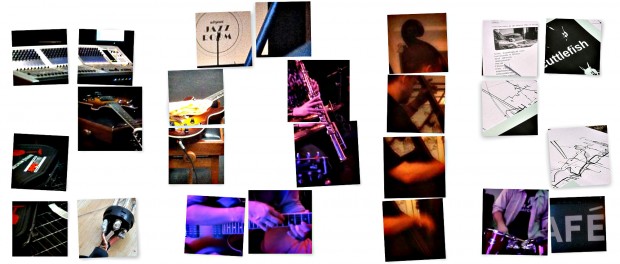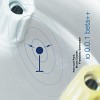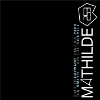
Apologies for the paucity of updates. I’m working on several things behind-the-scenes, and will be back shortly with news of performances coming up in Berlin, Manchester, Belfast and elsewhere; updates on Anomic Aphasia (SLAMCD 559); and news of a new amplifier. Be right back….
Happy New Year: 2015

teaser: Anomic Aphasia
Short preview of the forthcoming Anomic Aphasia (SLAMCD 559). To be released by SLAM Productions in February 2015, as previously announced, the recording features the ensemble Eris 136199 (Nick Didkovsky: guitar; Han-earl Park: guitar; and Catherine Sikora: saxophones), and renderings of Metis 9 (a collaboration between Park; Sikora; and Josh Sinton: saxophone and clarinet).
Anomic Aphasia will be available from Downtown Music Gallery, Squidco, Wayside Music and all AWESOME record stores, and as download from iTunes, eMusic, etc. More info to follow…
For the latest, check back at: www.busterandfriends.com/aphasia
recording details
Music by Eris 136199 (Nick Didkovsky, Han-earl Park and Catherine Sikora), and by Han-earl Park, Catherine Sikora and Josh Sinton. Tactical macros (‘Metis 9’) devised and specified by Han-earl Park.
Recorded live at Douglass Street Music Collective, Brooklyn on June 5, 2013.
Recording engineered by Scott Friedlander.
Recorded live at Harvestworks, New York City on October 29, 2013.
Recording engineered by Kevin Ramsay. Mixed by Han-earl Park.
Design and artwork by Han-earl Park.
© Han-earl Park. ℗ SLAM Productions.
Available from SLAM Productions…

io 0.0.1 beta++ (SLAMCD 531) [details…]
Performers: io 0.0.1 beta++ (itself), Han-earl Park (guitar), Bruce Coates (alto and sopranino saxophones) and Franziska Schroeder (soprano saxophone). [About this project…]
© 2011 Han-earl Park.
℗ 2011 SLAM Productions.

Mathilde 253 (SLAMCD 528) [details…]
Performers: Charles Hayward (drums, percussion and melodica), Han-earl Park (guitar) and Ian Smith (trumpet and flugelhorn) plus Lol Coxhill (saxophone). [About this ensemble…]
© 2010 Han-earl Park.
℗ 2010 SLAM Productions.
updates
02–18–15: link to SLAM catalog entry.
CD in preparation: Anomic Aphasia

To be released by SLAM Productions in February 2015: Anomic Aphasia (SLAMCD 559) featuring two New York/Brooklyn-based projects, the collision of noise and serendipity that is Eris 136199 (Nick Didkovsky: guitar; Han-earl Park: guitar; and Catherine Sikora: saxophones), and the real-time rendering of the improvisative playbook Metis 9 (a collaboration between Park; Sikora; and Josh Sinton: saxophone and clarinet).
I am very proud of the work represented by these projects, documenting some of the best playing that I have had the honor of being part of. Super excited that this is coming out.
Anomic Aphasia will be available from Downtown Music Gallery, Squidco, Wayside Music and all AWESOME record stores, and as download from iTunes, eMusic, etc. More info to follow…
For the latest, check back at: www.busterandfriends.com/aphasia
Available from SLAM Productions…

io 0.0.1 beta++ (SLAMCD 531) [details…]
Performers: io 0.0.1 beta++ (itself), Han-earl Park (guitar), Bruce Coates (alto and sopranino saxophones) and Franziska Schroeder (soprano saxophone). [About this project…]
© 2011 Han-earl Park.
℗ 2011 SLAM Productions.

Mathilde 253 (SLAMCD 528) [details…]
Performers: Charles Hayward (drums, percussion and melodica), Han-earl Park (guitar) and Ian Smith (trumpet and flugelhorn) plus Lol Coxhill (saxophone). [About this ensemble…]
© 2010 Han-earl Park.
℗ 2010 SLAM Productions.
updates
11–19–14: new release date: February 2015.
site update: Han-earl Park bio plus YouTube playlist
Although nowhere near a big a revision as the last major update, I’ve made some significant changes to my bio. Below is the new verbose, everything-but-the-kitchen-sink, 472 word version [shorter versions…].
Improviser, guitarist and constructor Han-earl Park (박한얼) (www.busterandfriends.com) has been crossing borders and performing fuzzily idiomatic, on occasion experimental, always traditional, open improvised musics for twenty years. He has performed in clubs, theaters, art galleries, concert halls, and (ad-hoc) alternative spaces in Austria, Denmark, Germany, England, Ireland, The Netherlands, Scotland and the USA.
Park engages a radical, liminal, cyborg virtuosity in which mind, body and artifact collide. He is driven by the social and revolutionary potential of real-time interactive performance in which tradition and practice become creative problematics. As a constructor of musical automata, he is interested in partial, and partially frustrating, context-specific artifacts; artifacts that amplify social relations and corporeal identities and agencies.
Ensembles include Mathilde 253 with Charles Hayward and Ian Smith, Eris 136199 with Nick Didkovsky and Catherine Sikora, and Numbers with Richard Barrett. Park is the constructor of the machine improviser io 0.0.1 beta++, and instigator of Metis 9, a playbook of improvisative tactics. He has performed with Wadada Leo Smith, Paul Dunmall, Evan Parker, Lol Coxhill, Mark Sanders, Josh Sinton, Louise Dam Eckardt Jensen, Gino Robair, Tim Perkis, Andrew Drury, Pat Thomas and Franziska Schroeder. He has guested with Gargantius Effect (Murray Campbell and Randy McKean), the Mark Hanslip/Dominic Lash/Phillip Marks Trio, and Swim This (Nick Didkovsky, Gerry Hemingway and Michael Lytle); performed as part of large ensembles led by Wadada Leo Smith, Evan Parker and Pauline Oliveros; and participated in improvisative meetings with Gerald Cleaver, Andrea Parkins, Tom Rainey, Mike Pride, Anna Webber, Jack Wright and Ingrid Laubrock. He has studied with improviser-composers Wadada Leo Smith, Richard Barrett, Joel Ryan, Mark Trayle, Chick Lyall and David Rosenboom, composers Clarence Barlow and Marina Adamia, and interactive media artist Sara Roberts.
Festival appearances include Freedom of the City (London), Sonorities (Belfast), International Society for Improvised Music (New York), dialogues festival (Edinburgh), VAIN Live Art (Oxford), Center for Experiments in Art, Information and Technology Festival (Los Angeles) and Sonic Acts (Amsterdam). In addition to numerous self-released albums, his recordings have been released by Slam Productions, Creative Sources, Vicmod Records, FrImp, Owlhouse Recordings and DUNS Limited Edition. His music has been featured on anthologies released by Bridge Records, farpoint recordings and Frog Peak Music. He has performed live on Resonance FM (London), Drift Radio (Scotland), and KVMR 89.5 FM (Nevada County), interviewed on RTÉ Morning Ireland and RTÉ Nova (Ireland), and his recordings have been broadcast around the world.
Park taught improvisation at University College Cork (2006–2011), and founded and curated (2007–2011) Stet Lab, a space for improvised music in Cork. He is a recipient of grants from the Arts Council of Ireland (2007, 2008 and 2009) and Music Network (2009 and 2010), and of the Ahmanson Foundation Scholarship (1999) and the CalArts Scholarship (1999 and 1999–2000).
[Han-earl Park’s biography (16–472 words) plus press quotes…]
I’ve also taken the opportunity to create a new video playlist of selected performances. With 52 videos, and clocking in at around 13 hours, my previous playlist of ‘recent’ performances was no longer able to be an effective portfolio reel. Thanks as always to the videographers (Don Mount, Kevin Reilly and Scott Friedlander), and to all the performers.
thanks: Eris 136199 (ISIM, NYC), Rasmussen-Foster-Niggenkemper-Park (DMG, NYC) and Park-Rainey (Why Not Jazz Room, NYC)
A belated note of thanks for all involved in the June 6, June 6 (no that’s not a typo—two performances on that day), and June 8 events. Thanks to the folk at ISIM, and in particular to Richard Robeson, Billy Satterwhite and Ed Sarath for organizing, curating and facilitating the event, and to Christopher Hoffman for the tech support; to Bruce and everyone at Downtown Music Gallery, the World’s Greatest Record Store (seriously, go buy a record from them right now); and to Andrea Wolper and her amazing series, and to Why Not Jazz Room. Thanks also to the multiple documentarists: videographers Don Mount and Juan Ant [watch/listen…], and to photographer Peter Gannushkin [see…].
As always, big thanks to the creative folk who shared the stage with me; it’s always a privilege. Applaud these folk: Mette Rasmussen, Michael Foster, Pascal Niggenkemper; Tom Rainey (how does one perform with a drummer who can anticipate every move?); and the two that complete Eris 136199: Nick Didkovsky and Catherine Sikora (always a blast).
Finally, thanks to all who came to listen. That’s to be my last visit to New York for sometime, and, audience big or small, it’s always a pleasure to perform for you.
Lost at the Border: Improvisation, Conservation and Transformation (a twitter transcript)
Previte: “I’m a bit of a mongrel.” #isim2014
…and w/ that simple statement, is not the enterprise of Cross-Cultural Improvisation nuked? #isim2014
More tweets from an institutionally unaffiliated, sometimes teacher, amateur scholar and anthropologist [a previous twitter transcript…]. Below is an unedited transcript of my observations from ISIM: Cross-Cultural Improvisation III. My original observations came in the form of live tweets via @hanearlpark that spanned the opening ceremony on June 5, the conference plus performances between June 6 and 8, plus some post-event reflections.
My questions and observations are indebted to discussions with @AndreaWolper, @jkais, @nickreynoldsatw, @MarkImprov, @drmelmarshall and @coreymwamba both on- and off- the twitterverse.
My rants, however, are entirely my own 😉
Twitter transcript (unedited)
Opening Ceremony: New York, June 5, 2014
→ Heading to the #isim2014 opening ceremony. (‘Ceremony’ sounds so ostentatious. Conference folk, seriously…)
→ After my comments about #diversity and #rsa2014 & #amspittsburgh, was ready to be disappointed by #isim2014. Better, maybe, but not perfect.
→ Fewer suits and lighter makeup at #isim2014 compared to #rsa2014 & #amspittsburgh. #amateuranthropology
→ Is the ‘global village’ still a possibility? What violence hides behind such an idea? #isim2014
→ Can we imagine a global village achieved w/out violence? w/out the erasure of difference? #isim2014
→ There’s an interesting evocation of a kind of futurism in a lot of improvisative traditions. #isim2014
Conference: New York, June 6, 2014
→ 3pm: #noise #melody #rhythm #contrast #serendipity #contradiction from Eris 136199 w/ @DoctorNerve @CatherineSikora @ @ISIMprov. #isim2014
→ Cognition vs embodiment. #isim2014
→ Is cognition a form of computation? Is embodiment a form of (physical) computation? #isim2014
→ Is a successful improvisation (always) narrative? #isim2014
→ This reminds me of Paul Berg’s algorithmic composition class… #isim2014
→ …either you create a process that creates desirable results, or one that creates noise that is selectively filter. #isim2014
→ Doesn’t (biological) evolution depend on the environment? Doesn’t musicality depend on the (cultural) environment? #isim2014
→ GenJam: the worst thing to happen to machine improvisation? #discuss #isim2014
→ Unasked question: how an improviser tries to make the rest of the band sound good. #isim2014
→ Unasked question: how individual desires (goals) collide to provide long-term formal structures (retroactively). #isim2014
→ …in this context, concentrating on individual intention may be missing the bigger picture. #isim2014
→ Problem w/ the Turing Test in creative contexts is that ‘I know it when I see/hear it’ ends up as a mirror of ‘does it swing’ #isim2014
→ Can we discuss rhythm w/out engaging w/ embodiment? #isim2014
→ History = cultural context = environment in which evolution takes place? #isim2014
→ At what point does cooperation & competition diverge in improvisative performance? #isim2014
→ …or is that a false dichotomy? are those terms meaningless in the context of improvisative play? #isim2014
→ Why are so many musicians so assured when idiomatic pressures are unambiguous, but uncertain when not? #isim2014
→ …is freedom that scary? #isim2014
→ …we know how to be a cog in the machine when the machine tells us to be? #isim2014
→ …we know our role/place/function in the ensemble if it’s prescribed for us? #isim2014
→ Is trans-idiomatic musicality a reflection of a kind of white middle-class mobility? #isim2014
→ …After trans-idiomatic meetings are (white) self-identified non-idiomatic musicians able to see idiom in their own playing? #isim2014
→ …are trans-idiomatic meetings by definition colonial? #isim2014
→ “No way to control what’s coming through your ears.” #isim2014
→ Ah, the sound of my circulation system. #isim2014
→ Can improvisation be about your ‘actual experience’ divorced from ‘thinking’? #isim2014
→ …in contrast, earlier presentation modeled improvisation exclusively as a ‘cognitive’ process. #isim2014
→ …why these simplifying assumptions in the context of something as complicated and human as improvisative play? isim
→ What’s possible given circumstances/resources = improvisation? #isim2014
→ …but what is the relation btwn this and the black american composer-improviser tradition? #isim2014
→ …Braxton said if you don’t compose this piece (for 276 accordions, say), then you will never hear it. #isim2014
→ After Lacy: “what’s alive for you?” #isim2014
→ …which is fine as far as it goes, but can we further unpack ‘aliveness’? #isim2014
→ ‘Trust,’ ‘courage,’ ‘openness,’ all terms we use to talk about improvisation. We should unpack these. #isim2014
→ Reminded of Braxton’s commend about how freedom is knowing your context well enough so that……… you. are. free. #isim2014
→ Oh, reminded how my skills as an improviser are so, so, so pathetic. #isim2014
→ I want more talk of noise and frenzy. #isim2014
→ I desire a discussion of collisions, contradictions, the unintelligible, the unspeakable. #isim2014
→ Where is improvisation, the destabilizing, the revolutionary, the dissonant, the dissenting? #isim2014
→ Part of me (uncharitably for sure) want to scream ‘f*ck calm.’ #isim2014
→ Goddamnnit. I am Asian, and I will not be your model of calm and reserved. #isim2014
→ Wadada: “try to find something unique in yourself.” #isim2014
→ …don’t try to fit in. #isim2014
→ …“I don’t want them to expect nothing!” #isim2014
→ Is ‘experience’ (unlike, say, subjectivity) (always) a term of resistance? #isim2014
→ ‘Compliment’ or ‘contradict’; what do these terms _mean_ in the context of improvisative play? #isim2014
→ …we seem to be struggling because we (think we) know the ‘correct’ terms to use. #isim2014
→ What does the term ‘pattern’ mean in the context of improvisative play? #isim2014
→ …can ‘pattern’ every be an enabling discursive element in the context of creative music? #isim2014
→ Often wonder if I should (get back to) playing more (overtly) melodic. #isim2014
→ Reminded of experiments about the different perceptions of musical construction depending on idiomatic background. #isim2014
→ …are not cultural misunderstandings so much more interesting than (ostensibly) clear channels of communication? #isim2014
→ ‘notes’; if we just jettisoned that term, our understanding of musical practices would be so much richer. #isim2014
→ Some additional insight if you understand both English and 한국말. #isim2014
→ Are terms such as ‘discipline’ and ‘pattern’ (discursively) limiting in the contacts of improvisative play? #isim2014
→ Reminded of Wadada once saying that when he puts his horn to his mouth, it’s a command. #isim2014
→ Previte: “I’m a bit of a mongrel.” #isim2014
→ …and w/ that simple statement, is not the enterprise of Cross-Cultural Improvisation nuked? #isim2014
→ The unresolved contradiction btwn agency and sublimation? #isim2014
→ #isim2014 http://t.co/bypjiQMRiS
→ how much of my views/practices are shaped by my teachers; how much convergence of approach because of who I chose as teachers? #isim2014
→ “Social aspects of musicality.” #isim2014
→ …an enormous amount of stuff blackboxed in that statement. #isim2014
→ ‘Leading’ and ‘following’; do these terms have any utility in the context of improvisative play? #isim2014
→ “Where was I going?” (unintentionally?) good description of what we are doing. #isim2014
→ …Something I learned when I started teaching improvisation was the utility I jettisoning these terms. #isim2014
Conference: New York, June 7, 2014
→ However you cut it, solo is that impossible thing in improvisation. #isim2014
→ …you have _got_ to have something pretty damn important to say/present. #isim2014
→ …in that sense, by analogy, Romey’s speeches during the last election would be an example or a useless solo. #isim2014
→ …I’ve consciously engaged w/ the solo context self-consciously on and off for the last ten years, but I still haven’t cracked it. #isim2014
→ Echoes of Philip Glass? or of Chris Cutler? #isim2014
→ Random thought: what does the term ‘oppositional politics’ mean, if anything, in improvisative practices? #isim2014
→ …what does the term ‘ideology’ mean, if anything, in improvisative practices? #isim2014
→ …’cause, despite talk of the social, what I have heard little of (so far) at #isim2014 is the (explicitly) political.
→ …which may be a reflection more of my own predilections, but I worry about the gentrification of improvisation. #isim2014
→ …what happens to improvisation as an oppositional force when, say, academic classical performers ‘dabble’ in it… #isim2014 [1/2]
→ …w/out necessarily interrogating their own tradition/practice/history and the structures of power? #isim2014 [2/2]
→ A new kind of cross-cultural musicology that “can only be fathomed by the improviser.” #isim2014
→ …but to paraphrase Previte, are we not (always already) mongrels? #isim2014
→ “India, Korea, then Wadada, then Bobby.” hmm #isim2014
→ Is ‘merging’ a useful notion in the context of improvisative performance? #isim2014
→ …Is ‘merging’ a useful notion in the context of improvisative (cross-cultural) meetings? #isim2014
→ “Not trying to drop a bomb.” But are bombs unambiguous across cultural borders? #isim2014
→ …one might intend Operation Enduring Freedom, others might interpret Invasion and Empire Building. #isim2014
→ “Tradition is not a dead thing.” #isim2014
→ …yes, but traditions sometimes die/petrify/fossilize. #isim2014
→ …under what conditions do traditions die/petrify/fossilize? #isim2014
→ “What an [musical, performative] action signifies.” #isim2014
→ ‘Notes’—that word again. #isim2014
→ “There is that elasticity in _everything_.” #isim2014
→ Can we unpack the term ‘energy’ in the context of these discussions of improvisation? #isim2014
→ “To feel secure in that uncertainty is the biggest challenge of any musician, or human being for that matter.” #isim2014
→ “Leave it up to analyst to explain what happened [in spontaneous creation].” #isim2014
→ …part agree, but then why are we here? #isim2014
→ …there is this constant tension btwn intellectual and anti-intellectualism in the traditions of improvisative performance. #isim2014
→ “A future event can affect the present.” #isim2014
→ …reminds me of Ted Chiang’s story of the performative language changes consciousness and sense of causality. #isim2014
→ …which might relate to the quip about leaving analysis to the analyst. #isim2014
→ I have little patience for the regurgitation of amateur physics. #isim2014
→ Going out for air. #isim2014
→ improvised music “goes beyond style.” But does it? #isim2014
→ Is #isim2014 attempting to turn #improvisedmusic into the emblem of salvation for academic (study of) music? #isim2014
→ …where does tokenism end, and revolutionary equality begin? #isim2014
→ …Is it unfair to compare this to (post-)colonial ideas of savages as agents of renewal? #isim2014
→ To borrow from @vijayiyer: “The Jazz Educational Complex.” #isim2014
→ “Transdisciplinary space”—well, okay, but how to reconcile this (utopian) notion w/ the “cross-cultural”? #isim2014
→ “Institutions need to rebuild from the foundation.” #isim2014
→ …yes, but https://t.co/EOidN6pSmp
→ …yes, but https://t.co/yZHlEQRSVK
→ …yes, but https://t.co/gzEsSwYCvl
→ We want to _study_ improvisation, but we precisely do not want interactive destabilizing forces in the structures of academia. #isim2014
→ …Is it possible to rebuild academic (study of) music while keeping the formal structures intact? #isim2014
→ …so where does tokenism end? #isim2014
→ More talk of meditation. #isim2014 tropes.
→ Frustrated. Going out for air. #isim2014
→ “Nobody [at #isim2014] understands that we can’t talk about this w/out being critical!”
→ My thoughts on #isim2014 http://t.co/OWKnq76VFN
→ An academic would never present work w/out citing their sources. #isim2014 [1/6]
→ Should not the academic who studies improvisative practices/traditions also cite specific artists…? #isim2014 [2/6]
→ …rather than hide behind nebulous/generic language? #isim2014 [3/6]
→ If there’s a specific musical/artistic/creative element you’re talking about, surely you must be able to name a source. #isim2014 [4/6]
→ Why the double standards? Are scholars more important? #isim2014 [5/6]
→ …are their ‘possessions’ more valuable than the practitioners of your (supposed) area of expertise? #isim2014 [6/6]
Concert: New York, June 7, 2014
→ Problem w/ oval halls is that, if you’re at the focal point opposite the stage, those on stage will hear everything you say. #isim2014
→ If tomorrow’s gig is my last, then it’ll be the most important one I play. w/ Tom Rainey @ @whynotjazzroom NYC. http://t.co/Pwb2ZXJkZh
→ If ‘tradition’/‘patterns’ remain an unchanged backbone to improvisative meetings, what is achieved by those meetings? #isim2014
→ …seriously. Why bother? #isim2014
→ …or put it another way: re continued enterprise of ‘cross-cultural improvisations,’ an obvious question: now what? what next? #isim2014
→ …I am beginning to suspect that ‘cross-cultural improvisation’ is a cute arts marketing term that, however… #isim2014
→ …signifies little; no goal or purpose in mind. We can happily go our own merry ways at the end of the day… #isim2014
→ …safe from the transformative/revolutionary possibilities of improvisation. #isim2014
→ You know ‘notes’ and ‘patterns’ are the least interesting things about improvisation… #isim2014
→ …and though folk at #isim2014 have mentioned in passing that there’s this other stuff at play in improvisation…
→ …people have been reluctant to open up those black boxes. #isim2014
→ Safe in the knowledge that the scary, truly transformative aspect of improvisation can be left unexplored. #isim2014
→ Is it okay to feel betrayed by these (I have no reason to doubt) Masters of Tradition? #isim2014
→ Is it okay to feel angry about the prescriptions made by these Masters of Tradition? #isim2014
→ I’ll be honest. I walked out of the last thing. But I’m drawn back by Wadada. #isim2014
→ The AACM used two terms to denote their music and practice: ‘creative music’ and ‘free music.’ #isim2014
→ …and _this_ thing I’m hearing right now, I can get behind. #isim2014
→ …singular, powerful, noisy. That African American noise that showed the world How It Could Be Done. #isim2014
→ …a Music of Unbound Possibilities. #isim2014
→ Wadada’s left the stage. I’m leaving this time for real. See y’all tomorrow. #isim2014
→ .@nickreynoldsatw or academia only studies/legitimizes improvisative practices/traditions that emphasize the narrative… #isim2014
→ .@nickreynoldsatw …or academia chooses to impose narrativity onto improvisative practices/traditions. #isim2014
Conference: New York, June 8, 2014
→ How does one know when you cross an idiomatic or traditional border? #isim2014
→ …Rather than thinking of idiomatic vs free improvisation… #isim2014 [1/2]
→ …can we not just think of those borders as having shifted (or simply immaterial). There may be no inside/outside. #isim2014 [2/2]
→ Do you distinguish/delineate those elements inherited from the tradition, the practice, and your own inventions? #isim2014
→ Make an Early Music Noise Here. #isim2014
→ Make a New Music Noise Here. #isim2014
→ How is it that so many introduce improvisation into their practice, and the idiom becomes _more_ a caricature of itself? #isim2014
→ …why is it that improvisation leads us back into the familiar (rather than, as Lacy said, leap into the Unknown)? #isim2014
→ …how is that even possible? (Not a rhetorical question) #isim2014
→ …it’s like being free to do anything, and we end up telling that same anecdote over and over again. #isim2014
→ …it’s like giving what you _presume_ to be the right answer (even though there is no right answer). #isim2014
→ …it’s like being afraid to give the wrong answer (when the question was entirely open). #isim2014
→ …do we not know how to be free? or are we afraid? #isim2014
→ …reminded of Mark Sanders saying that you should not listen to your inner critic; the one who knows the ‘right answer.’ #isim2014
→ Borders can be demolished. Let’s All Cross Borders. Right. Now. #isim2014
→ Talking to D Ewart about how cultural/material exchanges have been happening since the beginning of time. #isim2014
→ …along w/ Previte’s comment, does this not nuke the whole premise of ‘cross-cultural improvisations’? #isim2014
→ I am going to start ISIT: the International Society for Indignant Tweeters. Who’s with me?
→ Some great comments from the floor: concrete suggestions to increase diversity and accessibility. #isim2014
→ “Breaking down the [academic] structure of [how presentations are made].” #isim2014
→ “How was it funded?” #isim2014
→ I am reminded again how much I am the wrong Asian to participate in a ‘cross-cultural improvisation.’ #isim2014
→ …and again: https://t.co/26M9aOMV0p #isim2014
→ Can’t directly compare #isim2014 with #rsa2014 or #amspittsburgh, but I will say that…
→ …#isim2014 does speak seriously/passionately about the need/desire for greater diversity/access.
→ …even if we don’t always have concrete plans. #isim2014
→ Yesterday… Yesterday I… Yesterday I walked… Yesterday I walked past… Yesterday I walked past Philip…
→ But today I swapped CDs with Douglas Ewart. How frickin’ cool is that?!? #isim2014
Post-conference reflections…
→ Final thoughts on #isim2014: the main thing I learned (and in retrospect why I was angry), was about my own prejudices… [1/9]
→ …I had made a lazy, unexamined assumption about improvisation (its practice and its implications)… #isim2014 [2/9]
→ …I had assumed (w/out evidence) that improvisation was intrinsically tranformative/revolutionary/disruptive/noisy/etc, and… #isim2014 [3/9]
→ …that any tradition that incorporated it, must themselves be revolutionary/disruptive//noisy/etc… #isim2014 [4/9]
→ …That, in retrospect, was a naive, unfounded postulation that in turn lead to an erroneous conclusion… #isim2014 [5/9]
→ …I learned that improvisative traditions may not have the tranformative/revolutionary/disruptive/etc as thier focal point… #isim2014 [6/9]
→ …that improvisative traditions/practices might conceivably be conservative/reactionary/etc… #isim2014 [7/9]
→ …I learned that what I (unquestioningly) took as a universal improvisative impulse… #isim2014 [8/9]
→ …was a particular expression of a specifically (post-)Civil Rights African-American (derrived) one. #isim2014 [9/9]
→ Anyway, in case you missed it, this is still my best summary of my reponse to #isim2014: https://t.co/tjv7SOP8k6
→ 0. One more thought on #isim2014’s ‘Cross-Cultural Improvisations’: What, in retrospect, appears to have been at stake is not just the…
→ 1. …nature of improvisation as a means of conservation vs a means of self-determined transformation, but… #isim2014
→ 2. …specific expressions of these notions within a specific discursive framework. #isim2014
→ 3. So we had representatives from practices that are, to varying degrees and in varied ways, post-colonial, nationalist… #isim2014
→ 4. …in which the priorities might be described as a kind of classicism; we had a representative from a… #isim2014
→ 5. …Civil-Rights fueled, Afro-Futurist community; a representative from a vernacular-immersed post-modern avant-garde. #isim2014
→ 6. The idea that we would have dissonance at such a meeting shoudn’t perhaps be surprising, but for a… #isim2014
→ 7. …‘benevolent’ liberal-humanism that acted as the formal umbrella… #isim2014
→ 8. …that, surely, was the single biggest reason for the lack of productive dialogue. #isim2014
reminder: Han-earl Park and Tom Rainey at Why Not Jazz Room, New York
Tomorrow (Sunday, June 8, 2014), at 7:30pm: a performance by Han-earl Park (guitar) and Tom Rainey (drums), presented as part of Andrea Wolper’s Why Not Experiment? Series, takes place at Why Not Jazz Room (14 Christopher Street, New York, NY 10014) [map…]. Recommended donation: $10 per set.
A long-time fan of Mr Rainey’s work, I’m tremendously honored and excited to be sharing a stage with him. And multiply that with Andrea Wolper’s series which promises an open, intimate space for artistic experimentation.
Above video: last time I performed with Tom Rainey. The set with Ken Filiano and Ingrid Laubrock took place as part of Gowanus Company at Douglass Street Music Collective, Brooklyn. Video by Scott Friedlander. [Watch the rest…]
tonight: Mette Rasmussen with Michael Foster, Pascal Niggenkemper and Han-earl Park, New York

Tonight (Friday, June 6, 2014), at 7:00pm: a performance by ‘Alias Ra’ Mette Rasmussen (saxophones) with Michael Foster (saxophones), Pascal Niggenkemper (doubles bass) and Han-earl Park (guitar). Also performing at 6:00pm are Gianni Mimmo (saxophone) and Alison Blunt (violin). The event takes place at Downtown Music Gallery (13 Monroe Street, New York, NY 10002-7351) [map…]. Free admission.
reminder: Eris 136199 (Nick Didkovsky, Han-earl Park and Catherine Sikora) at ISIM, New York
ISIM: Cross-Cultural Improvisation III kicks-off this week, and on Friday (June 6, 2014), at 3:00pm, Eris 136199 (Nick Didkovsky: guitar; Han-earl Park: guitar; and Catherine Sikora: saxophones) will be performing at The New School for Jazz and Contemporary Music (55 West 13th Street, New York, NY 10011). Conference fees from $25 to $200 [more info and get tickets…].
Incidentally, the performance with ‘Alias Ra’ Mette Rasmussen, Michael Foster and Pascal Niggenkemper that was to take place on the evening of Eris 136199’s performance has been relocated to Downtown Music Gallery, New York. As always see the performance diary for up-to-date info.
site update: scrapbook redux reboot

Another summary of the updates to my scrapbook since the last review. A few newer clips from Brooklyn and New York which include some of the best music I’ve been involved in (the duo with Gerald Cleaver, in particular, has, for me, some of my best playing), plus a blast from the past: Mathilde 253 in Cork. With the latest updates, I’ve also taken the opportunity to split the scrapbook across two pages (with so much embedded media, it was getting near impossible for those with slower computers and/or connections to load the page).
Please note that all music and audio recordings © + ℗ their respective owners (i.e. these are not covered by a Creative Commons License).
Han-earl Park (guitar), Catherine Sikora (saxophones) and Mike Pride (drums).
Recorded live, April 2, 2014 at Spectrum, New York.
Recorded by Don Mount.
Evan Parker (saxophone) and Han-earl Park (guitar), plus Peter Evans (trumpet) and Okkyung Lee (’cello).
Recorded live, September 19, 2013 at The Stone, New York.
Recorded by Don Mount.
Gerald Cleaver (drums) and Han-earl Park (guitar).
Recorded live, August 13, 2013 at Douglass Street Music Collective, Brooklyn.
Recorded by Don Mount.
Mathilde 253 (Han-earl Park: guitar; Charles Hayward: drums; and Ian Smith: trumpet).
Recorded live, March 30, 2011 at Half Moon Theatre, Cork.
Presented with funding from the Music Network Performance and Touring Award, and support from the UCC School of Music and the Cork Opera House.
Recorded by John Hough. Live sound by Alex Fiennes.
performance: Mette Rasmussen with Michael Foster, Pascal Niggenkemper and Han-earl Park, Brooklyn
Stop Press: New venue!

Friday, June 6, 2014, at 7:00pm: a performance by the mystery saxophonist, ‘Alias Ra’ Mette Rasmussen with Michael Foster (saxophones), Pascal Niggenkemper (doubles bass) and Han-earl Park (guitar) as part of Soup and Sound House Concert. Also performing are Chris Stover (trombone), Russ Johnson (trumpet), Niels Praestholm (bass) and Andrew Drury (drums). The event takes place at Andrew Drury’s home in Lefferts Gardens, Brooklyn (contact him for the location). Recommended donation: $15. Also performing are Gianni Mimmo (saxophone) and Alison Blunt (violin) at 6:00pm. The event takes place at Downtown Music Gallery (13 Monroe Street, New York, NY 10002-7351) [map…]. Free admission.
See the performance diary for up-to-date info.
updates
06–02–14: cancelation.
06–02–14: new venue.
